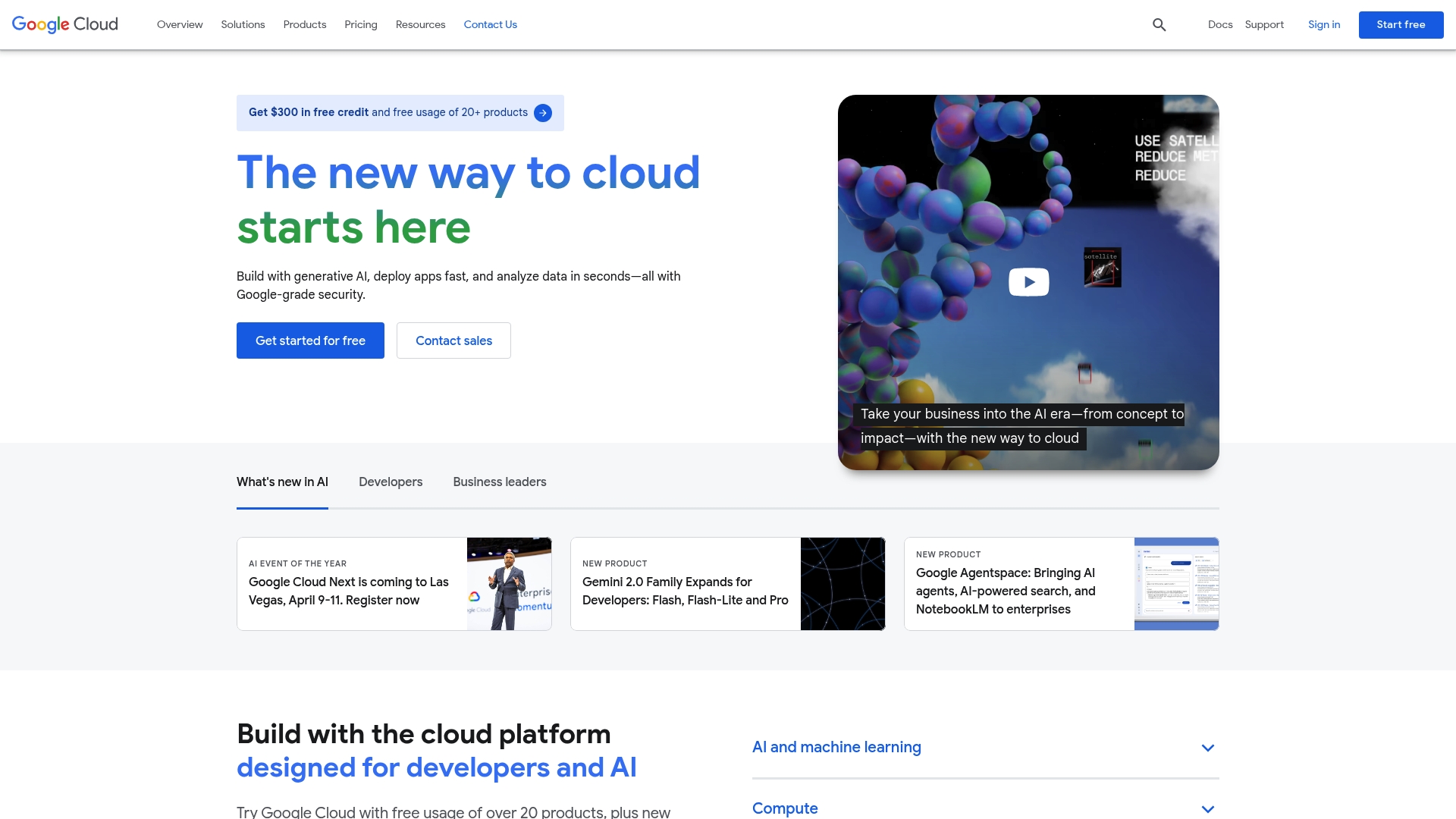

Google Cloud Reviews & Product Details
Google Cloud is a suite of cloud computing services offered by Google, providing a range of hosting and computing options for web applications, data storage, and machine learning projects. It includes services such as Google Compute Engine, Google Cloud Storage, and Google Kubernetes Engine, supporting businesses and developers in building, deploying, and scaling applications across a globally distributed infrastructure.


| Capabilities |
|
|---|---|
| Segment |
|
| Deployment | Cloud / SaaS / Web-Based |
| Support | 24/7 (Live rep), Chat, Email/Help Desk, FAQs/Forum, Knowledge Base, Phone Support |
| Training | Documentation, Live Online, Videos, Webinars |
| Languages | English, French, German, Indonesian, Spanish |



Offers potential integration with other services in the future. Competitive pricing. Not a direct competitor with GitHub or BitBucket so it has something new to offer.
Not sufficient for large projects yet. lacking current large-scale integrating partners
sharing and collaboration plus versioning with team members. using its' diagnostics and debugger error reporting.
Google Cloud Armor mainly protects against DDoS attacks. and help to reduce some the attacks. but it's not a sufficient thing for any website. maybe it's better for small or medium-sized companies.
I do not directly dislike it. But it does not protect a company from top to bottom. because security is that thing it required maximum area protection. So that's why I dislike it.
It mainly works for Ddos type or mass level any outside attack. but all time this kind of protection is not best practiced. It needs some manual configurable thing.
It's easy to respond and collect data from groups
I am satisfied with this product for my needs.
Signing up for meetings, collecting info.
I like the collaboration option Google Docs offers.
I dislike the lack of functionality specifically when comping it to WORD.
Google Docs allows our remote employees and employees on different floors to access documents for a quick collaboration or edit vs. emailing it around and losing versions.
Easy to use and intuitive for basic functions. However very limited in functionality.
Google seems to be a beginner in this segment. I don’t think Data studio is very robust or offers features that Tableau or others have. It seems more of like a home user product
Data visualization and analysis
It seems to have the potential of being useful. This potential isn't easily realized, but it's there.
It is incredibly complex and difficult to use. I get thwarted at every step when I'm trying to create reports. I am a power user of Excel and can generally pick up software very easily. Looker Studio is completely unintuitive. Every single thing is a challenge-- adding data sources, adding new calculated fields, and —god forbid— blending data. I rarely come away from a session of making or editing reports in Looker Studio where I'm not screaming in frustration. It is simply one of the worst business tools I have ever used. Free and worth actually less than that somehow.
It's theoretically helping us pull monthly reports.
It's fast and there are relatively few outages.
Firestore Security Rules are poorly architected, counterintuitive, difficult to debug and poorly documented. Reference type fields are useless for us, requiring duplicate data everywhere. Data import/export requires convoluted steps. The client library syntax changed, making half of the examples on the web obsolete.
It let me forgo in house database maintenance.
Setting up Auth was easy. Getting a collection and documents was pretty easy.
Limitations on queries. I tried to create a simple chat app where users can subscribe to any number of channels. I had a collection for messages that had a attribute for channel. If I had a user that had seven different channels, I had to make seven different queries to get the messages for that channel. I was using useEffect in React and on a couple of occasions quickly consumed the 50K reads.
I was trying to quickly stand up an app. The benefits I received is that I understood it was better to create my own infrastructure using Postgres and Node on a cloud provider. I subsequently read stories about nightmare billing scenarios.




